‘Neither helpful nor responsible’: Salmon industry fires back at Andrew Forrest over ad claims
The state’s salmon industry has launched a stunning rebuke at Andrew ‘Twiggy’ Forrest’s calls for reform, saying the mining magnate “does not care” for industry workers. LATEST >>
Tasmania
Don't miss out on the headlines from Tasmania. Followed categories will be added to My News.
- McGill Rise developer vows to ‘polish rough diamond’
- FORE! Driving range, mini golf proposal for Hobart
TASMANIA’S salmon industry has fired a withering rebuke at billionaire mining magnate Andrew “Twiggy” Forrest, saying his calls for growers to commit to better environmental outcomes are “either ill-informed or self-interested” and do “nothing for his standing in the state”.
The West Australian mogul has angered the industry by running full-page newspaper advertisements – including in the Mercury – featuring a list of commitments he says must be met.
These include eliminating fishmeal from feed, stopping adverse environmental effects in Macquarie Harbour, and committing to a future of land-based and deep water farming.
“We need to see more than words from you, we need to see immediate action,” the ad reads.
One of Huon Aquaculture’s largest shareholders, Dr Forrest’s intervention comes as meat processing giant JBS seeks to take control of the Tasmanian company.
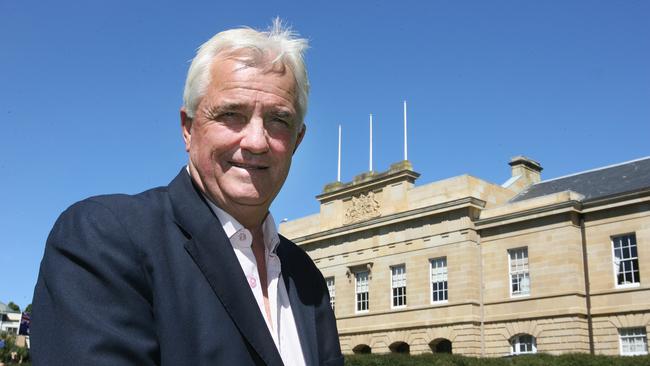
Tasmanian Salmonid Growers Association spokesman Julian Amos said Dr Forrest, whose private investment group Tattarang owns an 18.51 per cent stake in Huon, was misguided in his calls for industry reform.
“We find Dr Forrest’s comments either ill-informed or self-interested, and both are neither helpful nor responsible,” Mr Amos, a former state Labor minister, said on Friday.
“The salmon industry in Tasmania is proud of its achievements and of its people. Together we will continue to bring healthy, nutritious salmon to Australian dinner plates through innovation and determination. We are doing that now, and will remain doing so into the future.
“The claims made by Dr Forrest for ‘reform’ in the salmon industry do nothing for his standing in the state, and illustrate his lack of understanding of the industry.
“It leads us to believe that he does not care for the thousands of Tasmanians who derive their livelihood from our industry.”
Mr Amos speaks on behalf of the state’s big three salmon companies – Tassal, Petuna and Huon
“Maintaining the integrity of the marine environment and surrounding areas in which there are farms is a major factor in the decision-making for all TSGA members,” he said.
“The salmon industry in Tasmania sincerely hopes that Dr Forrest’s claims were a result of ignorance as opposed to the alternative, an intention to do harm to the industry for his own personal benefit.”
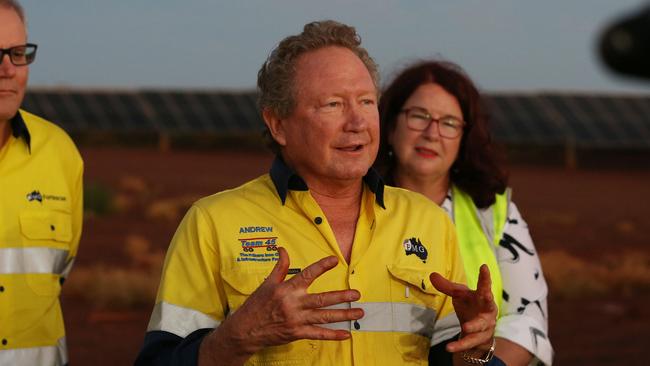
Dr Forrest told the Mercury this week that he had serious concerns about JBS’s track record on animal welfare across its global operations and urged the Foreign Investment Review Board to closely examine the company’s bid to buy Huon.
“Their major shareholders went to jail for corrupting hundreds of Brazilian politicians,” he said of JBS. “We know they’ve been judged by the Animal Welfare Institute... as operating seven of the 10 worst large livestock slaughter plants in America for cruelty.”
“And I’m simply saying, ‘Is this an organisation which needs to be rewarded with a takeover of Huon?’”
In a statement yesterday, JBS Australia chief executive Brent Eastwood defended the company, saying it “unequivocally supports” the concept of “no pain, no fear” and held to “the highest standards of animal welfare in this country”.
“We uphold our high standards of animal welfare through industry-leading policy relating to responsible care for animals under our control, regular internal and external audits, extensive CCTV monitoring, training for livestock handlers, and livestock transport checks,” he said.
“Understandably, Tasmania has some of the most stringent environmental licence and regulatory standards in the world to protect its pristine waterways and we are committed to meeting and exceeding those standards and rigorously applying our continuous improvement approach.”
Huon founders Peter and Frances Bender, along with the company’s board, have recommended that shareholders accept JBS’s offer of $3.85 a share, pending FIRB approval and unless a superior offer arises. JBS has also made a parallel 50.1 per cent minimum acceptance offer to Huon.
Twiggy’s welfare claims ‘unfounded’: Bender
A WAR of words has broken out after mining magnate turned salmon farm investor Andrew Forrest bought up shares on takeover target Huon Aquaculture.
Dr Forrest’s company Tattarang this week increased its holding in Huon Aquaculture Group in a move that could derail the agreed deal by JBS to buy the business for $425m, excluding debt.
Speaking to the Mercury, Dr Forrest said he believed Huon was on a path toward more sustainable practices before JBS appeared on the scene for a takeover bid.
Huon Aquaculture CEO Peter Bender was aghast at the comments saying the business already adopted best global practice.
Since Monday, Tattarang acquired another 11 per cent of the Huon stocktaking raising its stake in the company to 18.51 per cent.
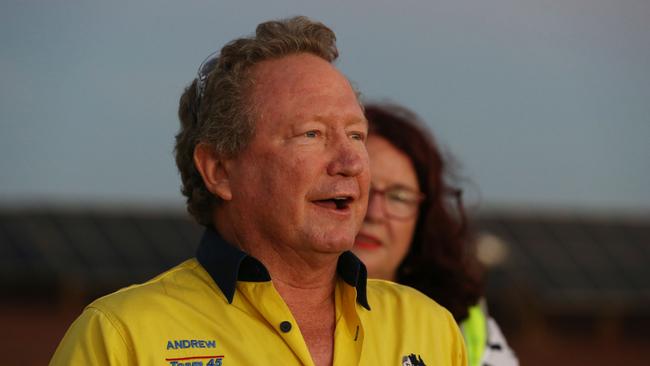
That makes Tattarang the second-largest shareholder in Huon behind JBS, which now holds a 40.53 per cent stake, acquired from founders Peter and Frances Bender this week under the takeover offer.
Shadforth financial group private wealth adviser Sam Baker said Tattarang paid $47m for the extra shares.
Mr Baker said the buy-up had implications for the JBS takeover bid.
“Under the scheme of arrangement between JBS and Huon Aquaculture the takeover deal needs 75 per cent shareholder approval,’ Mr Baker said.
“Between Dr Forrest and Australian Super the two now own over 30 per cent of shares so it could mean the JBS deal could fail to get enough shareholders votes in October to succeed.”
The ink was barely dry on the JBS takeover deal signed by both parties on Friday night when Dr Forrest swooped.
Dr Forrest said Tattarang’s plans for an aquaculture future involved deep offshore and land-based practices to eliminate impacts like those seen in Macquarie Harbour.
“We had no plans to increase stock density in pens and tanks because it causes stress to the animals,” Dr Forrest said.
“We believe we were on that path then JBS appeared. Every Tasmanian, every Australian, deserves to be totally invested in the standards JBS will hold themselves to in our country and around the world.”
He said that nowhere in the 138-page scheme of arrangements between JBS and Huon was there mention of the top three priorities he believed an animal protein company should have.
“JBS is the largest animal protein company in the world and they should have as their priorities certainly human rights in all their global operations, the environment and animal welfare,” he said.
“There’s no reason why the environment should not be sustained and must not be harmed and we put that squarely to JBS.
“There should be no pain and no fear in all aspects of animal processing … we don’t see evidence of those priorities in JBS.”
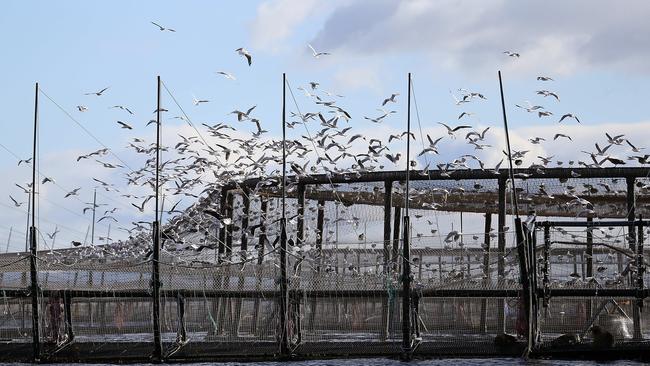
Huon Aquaculture CEO Peter Bender said Dr Forrest’s claims about Huon’s environmental and fish welfare practices were unfounded.
The company was the first and only seafood producer in Australia to hold RSPCA certification, he said.
“Huon has over 35 years of operation, been uncompromising in its commitment to the highest standards of animal husbandry, biosecurity, environmental management, and sustainable farming practices,” he said.
“Huon agrees with Mr Forrest that business operations must not compromise the environment.
“If Mr Forrest had bothered to check with me, he would know that our stocking density of maximum 1 per cent fish to 99 per cent water is the best in the world across the global salmon farming industry.”
Mr Bender said Huon’s humane harvest method — which it developed — had also been rated world’s best-practice, was RSPCA UK awarded and been adopted internationally by other salmon farmers.
“Mr Forrest can rest assured that every Huon fish is grown and harvested under the principles of ‘no pain no fear’,” he said.
JBS CEO Brent Eastwood said as the world’s largest animal protein-based company, ensuring the well-being of the animals under its care was an “uncompromising commitment.”
The Brazilian meat giant has an abattoir at Longford but closed its meat plants on King Island.
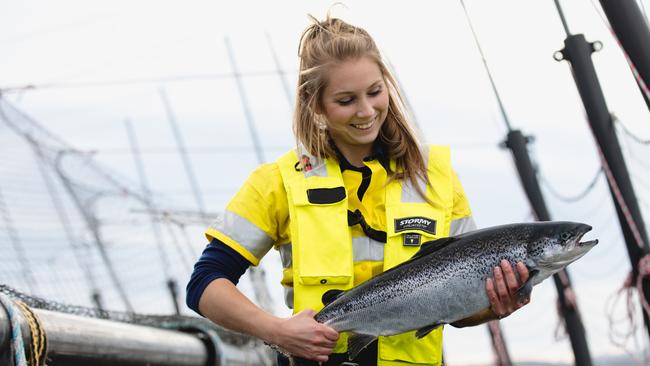
“We are confident that a partnership with JBS will extend and improve upon Huon’s legacy of high standards for superior quality, fish health, welfare and sustainable farming practices,” Mr Eastwood said.
He said the company was using technology to continually improve its welfare efforts.
“As a result, JBS is recognised as one of the best companies in the world for animal welfare practices, according to the most recent 2020 ranking from the Business Benchmark on Farm Animal Welfare,” Mr Eastwood said.
The company was also the first global meat and poultry company to publicly commit to achieve net zero greenhouse gas emissions across our entire value chain by 2040.
“We will provide further detail as appropriate regarding our commitment to best practice standards in animal welfare and environmental sustainability for all Huon shareholders to consider when the Scheme materials are released in due course,” he said.
Premier Peter Gutwein reiterates support for JBS
The JBS takeover of Huon Aquaculture is a matter for shareholders, the Premier says, although the company’s move into the states salmon industry is vehemently opposed by the Greens.
Premier Peter Gutwein has reiterated his support for JBS, saying foreign ownership is a feature of globalised markets.
“I said the other day, we live in a global community. At the end of the day, as Premier, obviously I would prefer Tasmanians to continue to own this business but we live in a global community.
“I haven’t seen the detail of what Mr Forrest might have put forward, but this is ultimately a matter for the shareholders of Huon Aquaculture.
“I’ve made the point on a number of occasions, we have increased regulation, we have separated it and made it independent of government and we have a highly regulated sector at the moment.
“I would expect any purchaser of Huon Aquaculture — and in fact any business in this space — that they would abide by the law, and the law is very strict. “
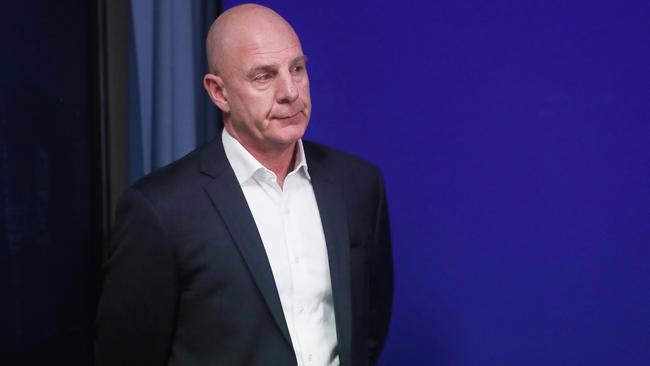
Mr Gutwein said the state would have input into the Foreign Investment Review Board decision on the sale.
“Whenever there’s a review by FIRB, we always make the submission.”
Greens leader Cassy O’Connor said the company was unfit to operate in Tasmania.
“JBS internationally has an appalling environmental track record.
“JBS’s parent company in Brazil over the past two years, for example, is responsible for around 42,500 hectares of deforestation in the Amazon jungle, at least half of that illegal.
“JBS takes up about 40 per cent of the US Environmental Protection Agency’s compliance and investigations.
“JBS has been found guilty in the States of poisoning rivers from Florida to Illinois to Texas. JBS poisoned Porky’s Creek on King Island before they shut down that abattoir in 2012. JBS is a terrible global citizen.
Ms O’Connor said the company had also been at the centre of a multimillion dollar political bribery scandal in its home country of Brazil.
“We have a situation here, where the government and the EPA couldn’t bring the fish farming industry to heel while the Benders were running Huon, imagine what it’s going to be like if you’ve got a multinational, planet-damaging corporation like JBS in charge of Huon Aquaculture.”


